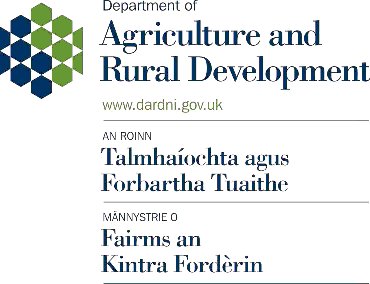ENVIRONMENT COMMITTEE
Wildlife and Natural Environment Bill Submission
Department of Agriculture and Rural Development

Animal Health and Welfare Policy Division
Animal Identification, Legislation and Welfare Branch
Room 914, Dundonald House
Upper Newtownards Road
BELFAST
BT4 3SB
Telephone: 028 9052 5290
Fax: 028 9052 5281
Email: Colette.Connor@dardni.gov.uk
12 February 2010
Sean McCann
Assistant Clerk
Committee for the Environment
Room 245
Parliament Buildings
STORMONT
BELFAST
BT4 3XX
Dear Sean
WILDLIFE AND NATURAL ENVIRONMENT BILL
Thank you for your letter of 12 January 2010 to our DALO in which you sought comments from the Department on the Wildlife and Natural Environment Bill.
DARD welcomes the new biodiversity duty contained in the Bill, and envisages that it will complement the work that DARD currently undertakes in relation to reversing the decline in farmland biodiversity.
We also welcome the enhanced sanctions placed on any body damaging, or permitting damage to, an Area of Special Scientific Interest (ASSI), and understand that this is unlikely to fundamentally alter the already close co-operation between DOE and DARD on issues around the management of agricultural land in ASSIs.
The use of snares is regulated under the Wildlife (Northern Ireland) Order 1985. On the basis of recent advice, we understand that DOE considers that the use of certain types of snares should be available to land managers as a legal method of dealing with pest species and when used properly, they can be an effective and relatively humane form of control. DOE has no plans to outlaw the use of snares. The Wildlife and Natural Environment Bill will provide for enhanced control over the use of snares to prevent unnecessary suffering. The new Bill proposes that anyone setting a snare will have to inspect it at least once every 24 hours and to remove, or release, any animal that has been caught.
Under Section 21(1) (d) of the Welfare of Animals Act 1972 which is the responsibility of DARD, it is an offence to fail to inspect an approved trap (approved under the Spring Traps Approval Order (Northern Ireland) 1996 No.515) or snare that has been set for the purpose of taking or killing animals. The 1972 Act requires that such inspections must be undertaken at reasonable intervals of time, and at least once every day. The PSNI is responsible for enforcing this legislation as it pertains to non-farm animals.
G iven the remit of the DOE Wildlife legislation, it is the Department’s view that it is entirely logical, and in line with the position in Britain and the south, that DOE should assume overall responsibility for traps and snares. The Department plans to meet DOE officials shortly to discuss the transfer of the current powers contained in the Welfare of Animals Act relating to snares and traps to the Wildlife and Natural Environment Bill in order that it falls to one Department only to regulate snares and traps in line with the principles of Better Regulation.
In legal terms, DOE need to repeal Section 21 of the Welfare of Animals Act 1972 and re-inact its provisions in their Wildlife and Natural Environment Bill. That should be quite straightforward. There are 2 SRs made under Section 21 of the 1972 Act, the Small Ground Vermin Traps Order 1961 and the Spring Traps Approval Order 1996. DOE will need to enact comparable Orders under their legislation. As a consequence, the new Welfare of Animals Bill, which DARD is currently bringing forward, will have no specific powers in respect of snares or traps, although the general provisions in respect of cruelty offences will still apply to snares and traps. The new Welfare of Animals Bill is expected to be introduced to the Assembly before the summer recess.
The Department notes that the Irish Hare is not to be added to the list of protected animals in Schedule 5 of the Wildlife Order. Nevertheless, we have decided to exclude it from the wild animals that may be controlled to protect woodlands under the Forestry Bill.
We note the broader powers to cull deer, under licence, during the close season to protect the natural heritage and property. However, the Department welcomes that the power under Article 20 to control deer to protect crops and growing timber is unaffected. Deer control in the close season is covered under the Forestry Bill, but separate provision will be necessary to protect woodlands grown for any purpose.
The Department welcomes the addition of Muntjac deer to the list of Schedule 9 animals but is disappointed that Roe deer and Chinese Water Deer which also pose a high risk to native woodland have not been included.
Secondary legislation to license keeping Muntjac deer under Destructive Importation of Animals Act (Northern Ireland) 1933 would be required to be drafted by DARD. While, we certainly would have no difficulty in accommodating DOE in this matter, there would be some resource issues to be addressed in the first instance.
I am copying this letter to Joe Cassells, the DARD DALO and also to Paul Carlisle, the Clerk of the Agriculture and Rural Development Committee.
Yours sincerely

